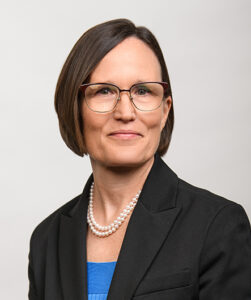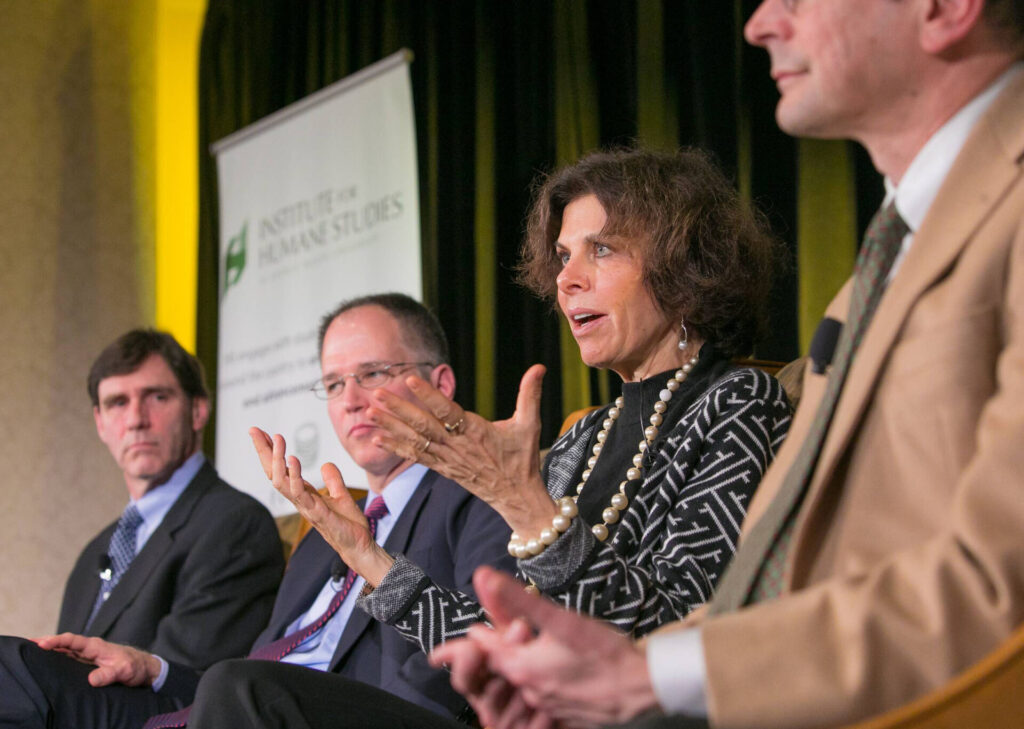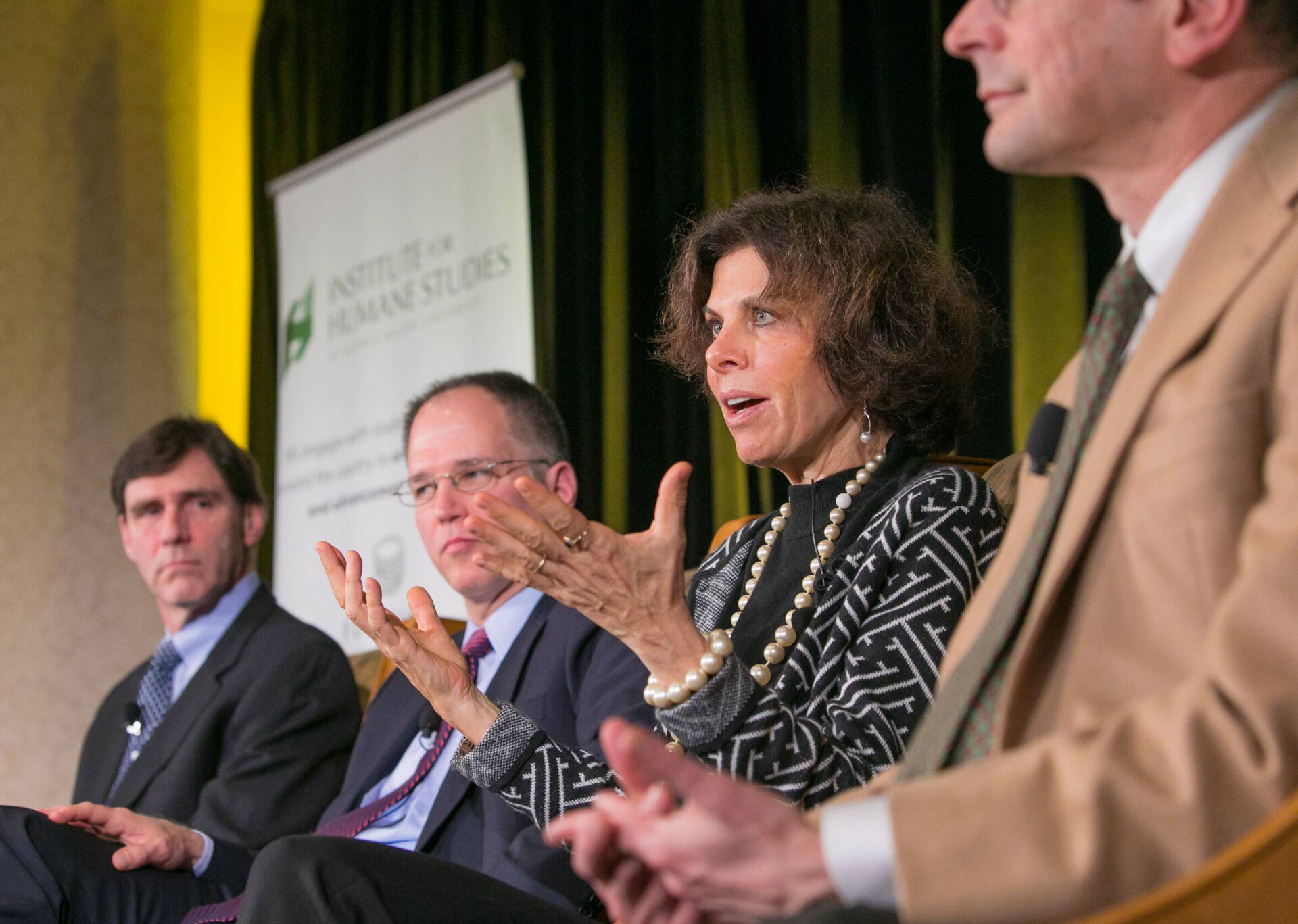
Emily Chamlee-Wright, IHS President & CEO
The open, good faith pursuit of truth is at the heart of the classical liberal tradition. It guides us in identifying the norms and institutions essential to human flourishing. And it is the context in which we’re inspired to ask the BIG questions – the questions that drive creative and scientific discovery and the questions that spark our imagination for what a better world might look like.
Early on in my career, the big question that captured my imagination was “How would the world be fundamentally transformed if women – across the globe – had political and economic freedom?” As is customary with scholarly pursuits, I narrowed my focus to more precisely defined lines of inquiry. But the big question was always there. In my mind’s eye, I never lost sight of the cascade of prosperity and human betterment such freedoms could create, not just for women themselves, but their daughters, their sons, and every generation that followed.
Later my attention turned to post-disaster recovery. The big question that animated our research team was, “What if post-disaster recovery was less about putting it all in the hands of redevelopment planning authorities and more about trusting and tapping the capacity of ordinary citizens – residents, home owners, business owners, school principals, parents, churches, neighborhood associations, and so on?”
A few underlying principles – though unspoken – unite big questions like these. The first is the principle of the inherent dignity of all people. To be sure, the economic lives of women matter for all sorts of practical reasons. But at an even more fundamental level, the reason we ask the question, the reason we think women’s freedom matters is because we believe that human freedom matters.
Another operating principle that underlies these questions is the recognition that, under the right conditions – an institutional environment of secure property rights, equality before the law, and the right to engage in market exchange – human beings have enormous capacity to solve problems, even complex and formidable problems like ending poverty and rebuilding communities in the wake of disaster.

Other ideas within the classical liberal tradition, from the discovery role that entrepreneurship plays in market society, to the wisdom of constitutional constraints in liberal democratic institutions, to the limits of human reason when it comes to engineering preferred outcomes in a complex society, represent a treasure trove of insight that we can pull from as we encounter fresh challenges on a local, national, and global scale.
As powerful as these principles are, however, they are not endpoints. Simply being in possession of them does not bypass the need for institutional analysis, empirical investigation, or philosophical debate about the political, economic, and moral tradeoffs of pursuing one solution over another. Rather, the principles are helpful because they provide a fruitful starting point that sets the search party off in a direction that defaults toward freedom over tyranny. If dignified, capacity-rich humans are failing, for some reason, to move the world in a better direction, for example, these principles have us begin by asking, “what’s wrong with the conditions in which they are operating?” not “what’s wrong with them?”
At IHS we talk a lot about putting classical liberal ideas to work in the world. This does not mean that the scholars we engage believe that they have all the answers. On the contrary, the scholars we support are those who take on genuinely complex challenges, intellectual projects where the stakes are high and the answers are not obvious. The scholars in our community are eager to engage with one another, not so they can affirm their priors or stick to familiar terrain, but to encounter other talented minds who will challenge them and help them do their best work.
And it’s this community that is hard at work, identifying bottom-up solutions to the new challenges the world throws our way, solutions that resist the rising tides of illiberalism and respect the dignity of all people.
If this sounds exciting to you, we invite you to join the IHS community of scholars, putting the ideas of political, economic, intellectual, and civic freedom to work in the world.
Emily Chamlee-Wright illustrates the importance of classical liberal ideas and investing in scholars and their innovative research, nurturing collaborations across ideological divides, and recentering societal and academic solutions on freedom and human flourishing.
Society is at a pivotal juncture against the backdrop of a discernible decline within the halls of higher learning. The remedy to these conditions lies in rekindling the time-honored principles of liberalism—a framework that fosters open discourse and inspires novel solutions. Our community of scholars and thought leaders aim to bring these principles to the forefront, influencing not only the academic sphere but also broader societal discourse.
Join us in support of scholars who are putting the ideas of political, economic, intellectual, and civic freedom to work in the world through collaborative scholarship and an unwavering commitment to human dignity and progress.
